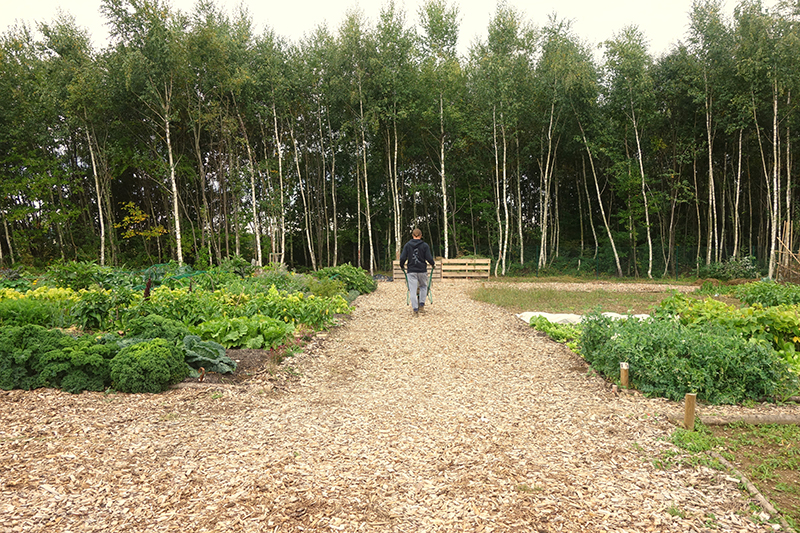Biodegradable household waste, green trimmings, and excavated material from construction sites are being turned into soil for urban gardens, to reduce waste and promote food self-sufficiency in the Urban Soil 4 Food project. Implemented in Maribor, Slovenia, the project is helping to develop a city-wide circular economy and encouraging the growth of innovative start-ups.
- 29 July 2020
Maribor aims to establish long-lasting circular cooperation between all the actors in its functional urban area, contributing to environmental excellence and the economic prosperity of Maribor and its citizens. In these turbulent times, sustainable local practices are the backbone of cities. This project increases local food self-sufficiency, promotes beneficial cooperation between all urban stakeholders and contributes to a more responsible and healthier urban existence.
The project aims to reduce the amount of biological and construction waste that ends up on landfills by 2 400 and 2 000 tonnes per year respectively, and divert this into producing 3 000 tonnes per year of soil. Three types of soil will be produced: to grow food in urban gardens and on balconies, for the maintenance of the city’s green areas, and for use in building roads and pavements.
By September 2019, the project reached one of its milestones of establishing four urban gardens. Located on a plot of 12 400 m2, the first has 66 individual plots for residents. The second is a model garden, the third a children’s garden, and, the fourth a social integration garden for the unemployed or volunteers.
In November 2019, an orchard with a variety of local species was planted. Work on establishing a local food chain is underway. A local food label is being created and a website to support local food producers is in its trial phase. The aim is for 50 farmers to use the label and to have at least 10 000 consumers of local food per year. It is hoped that the city’s greenhouse gas emissions will decrease by 5 % as less food is transported into Maribor from outside.
International certification
By the project’s scheduled end in November 2020, the aim is to have achieved certification of internationally standardised soil, and to have conducted training, seminars and study visits for participants. In addition, the project’s goals include supporting 15 SMEs working in the circular economy and holding open innovation workshops for at least 200 people.
The knowledge gained through the project will be disseminated to businesses, citizens and local governments in mid-sized cities in Slovenia and across the EU. Certificates will be developed and patents will be filed to ensure that urban soil technology and production are recognised internationally.
Pilot soil production plant
Efforts to set up a pilot soil production plant encountered resistance from local residents who were opposed to its location. The municipality has since found and rented another piece of land and construction has started. Soil production is scheduled to begin in June 2020. Despite the Coronavirus lockdown, the aim is still to meet this target.
Because of the pilot plant’s innovative nature – using processes like fermentation, mixing and pyrolysis – various technological solutions had to be combined into one. To overcome this hurdle, several partners have been presenting the project to potential technology providers across the EU to find the best solutions.
Other challenges that have had to be overcome included getting a large number of partners, including an SME, institutes, NGOs, and a public utility company to communicate. This was solved by setting up a management structure, holding regular meetings with the partners and with the support of the city’s former and current mayors.
Increasing self-sufficiency
The project is a response to the city’s heavy reliance on external resources for energy, water and food and to accommodate waste and emissions. According to the project’s website, there is a low level of self-sufficiency in Slovenia, soil is disappearing, the nutrient quality of food is poor and knowledge, particularly among the youth, about healthy eating is disappearing. The project hopes to promote the use of traditional and local seeds, to counteract the trend of multinational companies controlling seed production.
Funding for the project is provided by the ERDF and Urban Innovative Actions, a European Union initiative that gives cities funding they can use to implement innovative projects.
Urban Soil 4 Food was voted best green investment project at the Cities Forum 2020 international conference held in Porto, Portugal, in January 2020. This acknowledged the project’s good design and execution.
Total investment and EU funding
Total investment for the project “Urban Soil 4 Food – US4F” is EUR 3 747 650 , with the EU’s European Regional Development Fund contributing EUR 2 998 120 through the Urban Innovative Actions Initiative for the 2014-2020 programming period.

